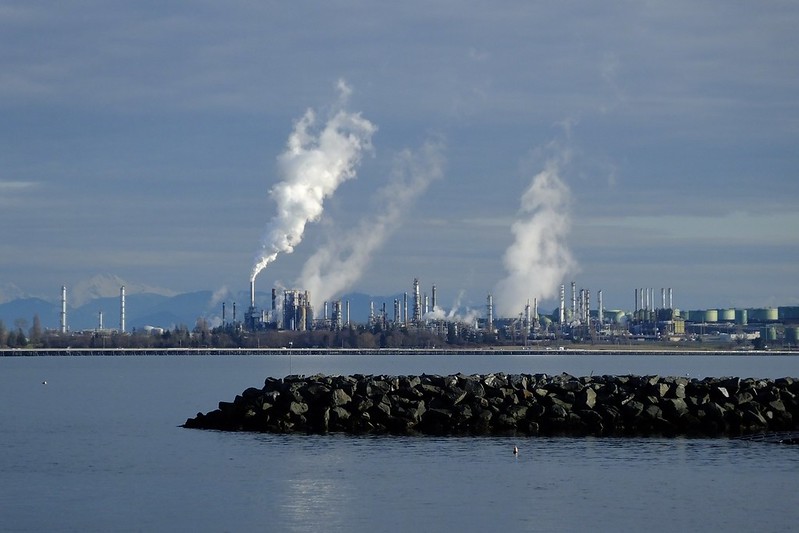Since 2019, seven US refineries have closed, almost all without warning. A new Sightline report details the economic shocks and environmental hazards that oil refineries left in their wake in the cities and towns around the United States where they abruptly shuttered. The closures cost more than 3,400 jobs and $21 million annually in local tax revenue—funds that had supported critical services like schools and hospitals.
Without exception, the oil refineries’ corporate owners decided the sites’ future without community input. Just one of the recently closed refineries, in Philadelphia, is being fully redeveloped. The rest are “idling,” converting to oil storage facilities, or converting to biofuels processing. These paths offer communities a sliver of former job and tax benefits while preventing full environmental remediation of the sites.
Washington state has five aging oil refineries of its own that employ more than 2,000 workers and paid over $24 million in local property taxes in 2021. They are also some of the state’s biggest polluters. Leaders in the region have a unique opportunity to begin today to chart a smoother path for the communities that host the refineries. By starting to plan ahead now, Washington leaders can lay the groundwork for good jobs, a clean environment, and vibrant futures in Whatcom, Skagit, and Pierce counties.


